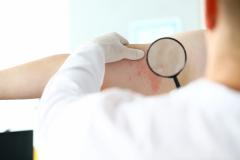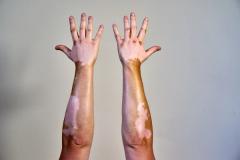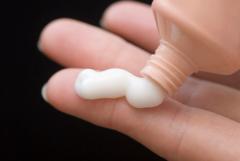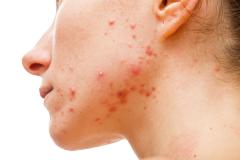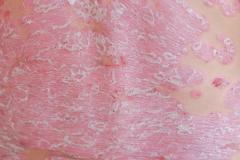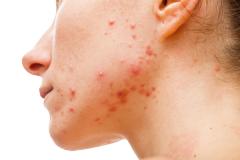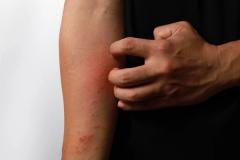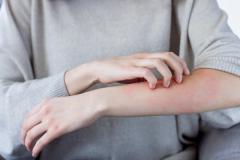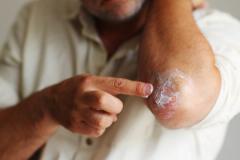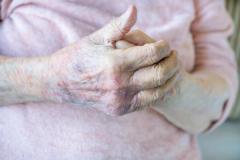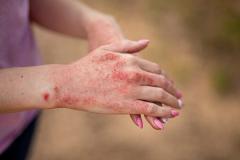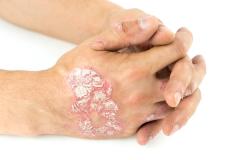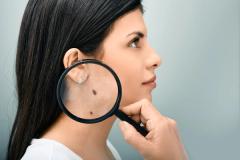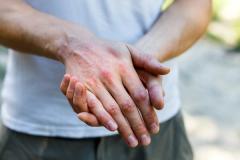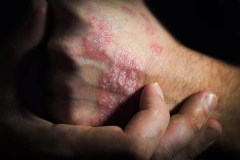
Dr Raj Chovatiya Provides Evidence Supporting Oral JAK Inhibitor Use to Treat AD
Raj Chovatiya, MD, PhD, associate professor at the Rosalind Franklin University of Medicine and Science, provided current clinical evidence supporting the use of oral Janus kinase (JAK) inhibitors to treat patients with atopic dermatitis (AD).
Raj Chovatiya, MD, PhD, associate professor at the Rosalind Franklin University of Medicine and Science, provided current clinical evidence supporting the use of oral Janus kinase (JAK) inhibitors to treat patients with atopic dermatitis (AD).
Chovatiya is also the founder and director of the Center for Medical Dermatology and Immunology Research in Chicago, Illinois.
Transcript
Could you provide insights into the current clinical evidence supporting the use of oral JAK inhibitors for patients with AD, including efficacy, safety profiles, and potential long-term outcomes?
Whenever we're talking about any therapy, oral JAK inhibitors included, you want to give the good with the bad, the positive with the negative. So, I'll start with the good stuff.
When it comes to thinking about oral JAK inhibitors, particularly at their higher dosing—both abrocitinib and upadacitinib have a lower dose and a higher dose)—it's some of the highest efficacy we've really ever seen for atopic dermatitis therapies. There's been a variety of indirect comparisons in recent years using what's called a network meta-analysis to sort of compare across different trials. What ends up coming out every single time, typically, is that upadacitinib 30 milligrams and abrocitinib 200 milligrams tend to be your best shot at getting the highest rates of clearance and also getting the highest rates of itch response. The biologics then seem to slot right after that.
Now, what is going to be the trade-off? Well, with the higher doses of the oral JAK inhibitors, you're going to be thinking about some common safety adverse event issues. These aren't really the box warning issues; those are really quite rare, altogether, and there isn't any clear evidence of that being a reliable risk and adverse event in the real world. In the case of abrocitinib: nausea, dizziness, and things like that. In the case of upadacitinib: acne probably being the more common one. Across both of them, thinking about herpes simplex and herpes zoster–related exacerbations.
Now, the good news is that we've accumulated longer and longer and longer term data, and a bit of real-world data, which gives us some reassurance in a couple of regards. Number one, efficacy sure seems to hold up compared to what we've seen in clinical trials, and I can speak to that for my own practice. If anything, the lower dose of the JAK inhibitors probably performs even better than you may expect based on the clinical trials.
Now, when we think about safety, the good news is that the safety profile in the real world has also largely been reflected. If anything, there hasn't been necessarily a clear risk for some of the longer-term extension data. In the case of upadacitinib now, this is the longest we have, going up to about 5 years, of these events of being thromboembolism, major adverse cardiovascular event, and malignancy really being directly connected to the drug itself.
In fact, some nice analyses have shown that, when you sort of look at epidemiologic data in atopic dermatitis patients, generally, and then look at sort of the data from long-term extension arms of these drug studies, it looks like probably you're hovering right around the normal background rate of these events in the atopic dermatitis patient population in general.
Newsletter
Stay ahead of policy, cost, and value—subscribe to AJMC for expert insights at the intersection of clinical care and health economics.



